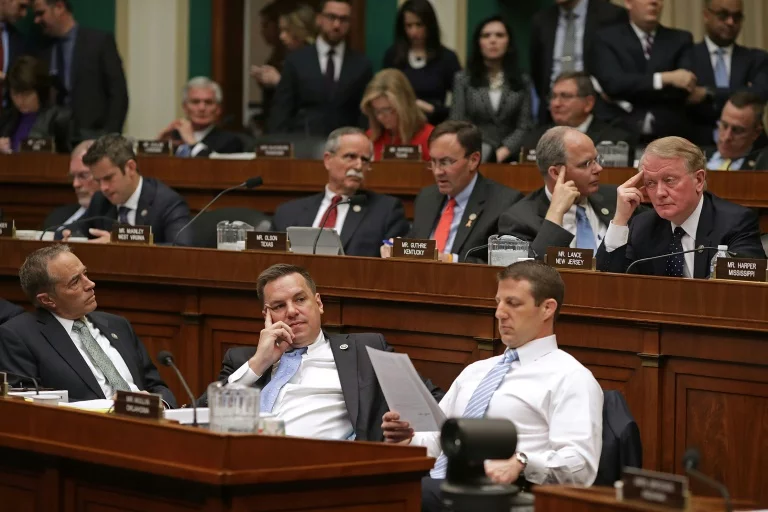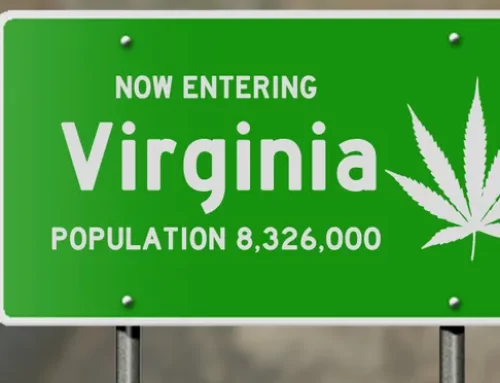Republican Lawmakers Move to Block Cannabis Rescheduling, Undermining Federal Reform Efforts
WASHINGTON, D.C.. Just as the Biden administration’s long-awaited cannabis rescheduling effort appeared to be gaining traction, Republicans in the House Appropriations Committee have moved to shut it down—using their control of a key budget bill to insert language that would block the Department of Justice from changing cannabis’s federal classification.
Tucked into the draft of the 2026 Commerce, Justice, Science (CJS) funding bill, the amendment bars the DOJ from using any federal funds to “reschedule, decontrol, or otherwise change the control status of cannabis.” This is a targeted strike against the administration’s push to reclassify cannabis from Schedule I to Schedule III under the Controlled Substances Act—a shift that could finally open the door to broader research, tax relief for cannabis businesses, and regulatory normalization.
The move is part of a broader Republican strategy to keep cannabis reform efforts bottled up at the federal level, even as public opinion, scientific consensus, and state-level legalization all point in the opposite direction.
A Direct Attack on the Biden Rescheduling Process
This provision, if passed into law, would effectively freeze the Biden administration’s cannabis rescheduling process, which began in earnest following the President’s 2022 directive for federal health and justice agencies to review the classification of cannabis. The Department of Health and Human Services (HHS) later recommended moving cannabis to Schedule III, recognizing its accepted medical use and lower potential for abuse compared to Schedule I substances like heroin and LSD.
While the Drug Enforcement Administration (DEA) has yet to finalize its decision, this funding restriction would halt the process entirely—regardless of scientific findings or agency recommendations.
Ironically, the same appropriations bill maintains language that prevents the DOJ from interfering with state medical cannabis programs, creating a contradiction: acknowledging the legitimacy of medical cannabis at the state level while refusing to recognize it at the federal level.
What Rescheduling Would Actually Change
To be clear, rescheduling would not legalize cannabis federally. However, it would make meaningful improvements:
- Tax Relief for Operators: Moving cannabis to Schedule III would eliminate the burdensome 280E tax provision, allowing cannabis businesses to deduct ordinary operating expenses for the first time.
- Expanded Research Access: Researchers would face fewer regulatory barriers, enabling more robust clinical trials and evidence-based policymaking.
- Improved Legal Consistency: Federal agencies could start aligning enforcement and regulation with the realities of state-legal markets.
By blocking rescheduling, Republican appropriators are keeping cannabis operators in a costly legal gray area—while denying patients, scientists, and regulators the benefits of a more coherent federal policy.
The Politics Behind the Block
This is not the first time cannabis reform has been derailed through backdoor legislative tactics. But this latest move comes at a moment when optimism was growing across the cannabis sector, thanks to mounting bipartisan support for incremental reforms like the STATES 2.0 Act and recent advancements in psychedelic research.
The decision to insert the anti-rescheduling provision was made during a subcommittee markup process led by Republicans, and passed along party lines. While it may still be stripped out during full House or Senate negotiations, its inclusion sends a clear message: certain members of Congress are determined to stall federal progress—despite majority public support for reform.
States Continue Marching Ahead
While Washington stalls, state legislatures and governors continue to push forward with cannabis policy changes:
- In Pennsylvania, bipartisan lawmakers have introduced adult-use legalization bills in both the House and Senate, with optimism growing that a deal can be reached.
- Delaware Governor Matt Meyer is weighing a bill that would limit local governments’ ability to block cannabis businesses. Meyer says he’s balancing “local control” with the need to jumpstart the state’s delayed adult-use market.
- Louisiana regulators just adopted new rules for the state’s medical cannabis program.
- California is offering disaster relief to licensed cannabis businesses impacted by wildfires.
- New York has launched new public service campaigns aimed at educating consumers about safe cannabis use.
These state-level actions continue to widen the gap between federal prohibition and local regulation—making federal inaction even more unsustainable.
Research Under Threat
Another major federal change is unfolding quietly: the National Institute on Drug Abuse (NIDA) has declined to renew its decades-old contract with the University of Mississippi, which has long held a monopoly on growing cannabis for federal research purposes.
While the move is part of a broader plan to diversify supply for research, the timing is significant. As the Biden administration pushes for greater scientific validation, the infrastructure for federally approved research is being reshuffled—raising concerns about continuity and access.
At the same time, the Senate Appropriations Committee has expressed concern over the “misleading marketing” of cannabis products and called for revised hemp regulations, while voicing support for psychedelic research. The contrast is telling: psychedelics are gaining federal traction faster than cannabis, despite cannabis having far broader public acceptance and commercial infrastructure.
Advocates Call for Pragmatic Progress
As frustrations grow within the cannabis community, some advocates are urging a more strategic, incremental approach. Shanita Penny, a leading voice at the Coalition for Cannabis Policy, Education and Regulation, argues that waiting for a “perfect” bill is counterproductive.
“We need to support foundational reforms like STATES 2.0,” she wrote in a recent op-ed. “Opposing everything that is not your version of perfect is not just hopeless—it is counterproductive.”
Her point is especially relevant now, as politically motivated blockades threaten to undo years of policy momentum. The message: fight for progress, not purity.
What’s Next? A Familiar Roadblock
Let’s be clear: this is a deliberate and partisan move by House Republicans to block a long-overdue shift in cannabis policy.
Rescheduling cannabis would not be a cure-all, but it would be a major step forward. Blocking it keeps businesses in financial limbo, patients in legal gray zones, and researchers behind unnecessary walls. Most importantly, it signals that—for some lawmakers—ideology still trumps science, economics, and the will of the people.
As Congress enters budget negotiations, the cannabis industry and its advocates must watch closely. What happens in this bill may well determine whether federal cannabis reform inches forward—or slips even further out of reach.
Mark Collins is the author and is tge founder of the Highly Capitalized Network, a platform focused on cannabis business, policy, and strategic communications globally.




































